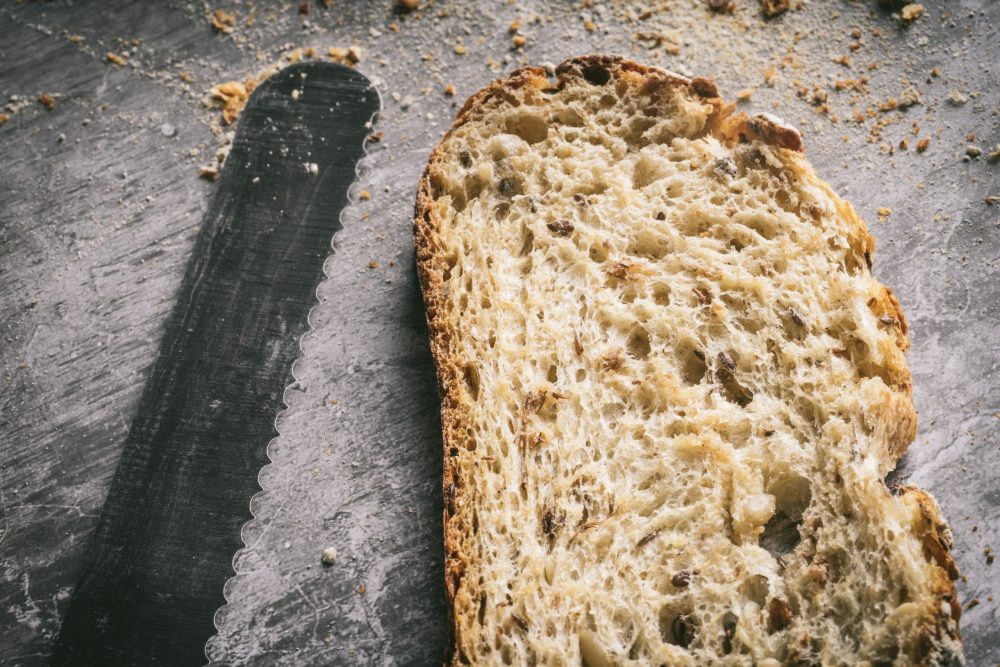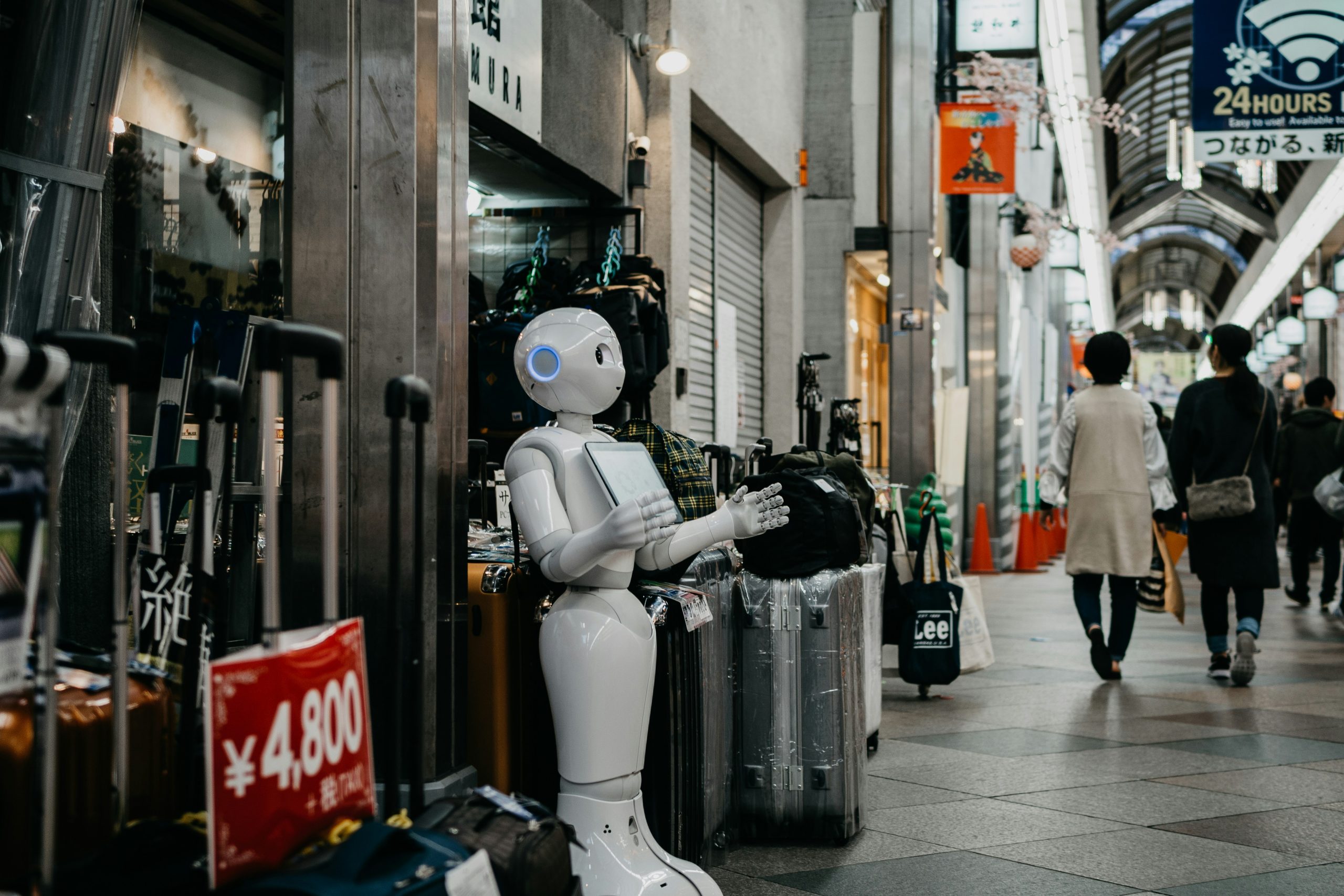interviews
Why Is Everyone Suddenly Obsessed With Sourdough?
Robin Sloan, author of "Sourdough," demystifies our quarantine fixation—and explains what we can learn from lactobacilli

All of a sudden, everyone is making sourdough. Cooped up and anxious from shelter-in-place orders, we turned to bread-making in such numbers that yeast became impossible to find. Denied commercial yeast, we thundered forward with sourdough, which relies instead on a starter made of flour and water, fermented by wild yeast and lactobacillus bacteria. Quarantine sourdough has gotten so popular that we're already getting backlash. Is it a forward-looking attempt to develop post-collapse skills? A way of bragging that you got your hands on some flour? The restless desire to make something tangible and useful? Or is it just a function of our collective depression and resulting desire for carbs?
For help interpreting this sourdough fixation, I turned to Robin Sloan, author of Sourdough. Sloan's book, which came out in 2017, predated our current moment, but also kind of prefigured it; it features an adrift and alienated tech worker who is brought back to herself when she's given a mysterious, almost otherworldly sourdough starter and begins baking perfect bread. I asked him what sourdough is doing for us right now, and what lessons it can teach us for the future.
Jess Zimmerman: Sourdough came out a few years ago, but it's newly relevant today because sourdough has become the hot quarantine hobby for people who are lucky enough to be able to think beyond survival. What have you observed about the rise (sorry) in sourdough culture (sorry)? I feel like it goes beyond "I want bread and I don't have yeast."
The reality of a sourdough starter is honestly SHOCKING. It's as much a weird roommate as a kitchen ingredient.
Robin Sloan: Well, this is what happened to me, and I think it's true for a lot of people, especially people who have lost touch with old foodways: the reality of a sourdough starter is honestly SHOCKING. That it's as much a weird roommate as a kitchen ingredient, I mean. It's probably not a very kind commentary on me, or people like me, and the way we live and eat that it should seem so strange at first—but, oh well! You've got to learn sometime. And I really do think that, beside being a key part of this iconic (delicious) substance, sourdough starter also offers this broader "ohhh" about cooking and eating and like, the whole natural world.
JZ: What's the substance of the "ohhh"? If people are making a sourdough starter because they don't have yeast, or because everyone else is doing it, or whatever, what can they expect to be sort of passively learning from that experience?
RS: I think the big surprise, ESPECIALLY if you get into sourdough baking because it means delicious carbs (rather than because of an interest in fermentation), is just how truly and palpably alive the starter is. I mean it MOVES. It expands and contracts. Sometimes it spills out over the lip of the jar. It has moods and very specific needs, in terms of temperature and humidity. It is really a different (LITERAL) animal than a sack of flour or even its desiccated cousins in the dry yeast packet. And when you reckon with that, I think it opens up a whole bunch of new questions and, maybe, preoccupations.
JZ: Is it possible that the fad for quarantine sourdough is not unrelated to the drive for quarantine pets?
RS: I feel like, for me, that's more aspirational than actual. This is where the fiction comes into it! I mean, I really DO believe that sourdough starters are strange, powerful, complex communities of life… but I wish they had a little bit more personality. The kind that's parsable by a human mind, anyway. So… I wrote one! (I think some of the really great sourdough bakers really are in tune with their starters that way. I have to confess I never got there; my fictional singing, burping starter was my "cheat," in a way.)
I do think that starters, like pets, are VERY happy with the situation we're in. They've never gotten more love and attention!
JZ: Your protagonist is a tech worker who's deeply alienated from a lot of aspects of human life, like eating normal food instead of a Soylent analogue. Baking bread and caring for her sourdough starter put her back in touch. We're experiencing a different kind of alienation now; can we still look to sourdough to ground us, at a time when a lot of us are actually way too connected to our kitchens?
RS: Well, the thing about sourdough that's extra special—and this is true for anything that calls for some microbial ferment—is that not only CAN you share the starter, doing so is basically required. So it's inherently social. I think the appeal of something like this [person who was tacking bags of free sourdough starter to telephone poles in the Bay Area] is not only its quirkiness, but the fact of sharing something (weirdly?) personal and incredibly abundant. A starter might be one of the all-time great gifts.
JZ: Have YOU been baking sourdough in social seclusion?
RS: I confess: I haven't! Here is the truth: I'm not a very good sourdough baker. I do have a starter, but mostly acts as a little factory producing excess for sourdough pancakes.
JZ: Wait, sourdough pancakes sound amazing though.
RS: Oh there is SO much you can do with all the "extra" material your starter produces after you feed it. Sourdough pancakes, sourdough waffles…
Turns out, just the tiniest bit of hardship unlocks this part of our brains that was always there, always waiting.
JZ: I wonder if this is going to be the next bit of frontiersmanship we all learn—I feel like I'm getting WAY better at figuring out what to do with what would otherwise be food waste. Although I guess one of the beauties of sourdough starter is that the leftovers are never waste, they're just potential new bread.
RS: Absolutely! Turns out, just the tiniest bit of hardship unlocks this part of our brains that was always there, always waiting. I'm sure you've felt the (mild) thrill of coming up with a use for some weird scrap. It's like a puzzle game. (All humans who lived a hundred years ago and before roll their eyes in sync.)
JZ: Okay, for the first time I understand my unprecedented excitement about making improvised soup the other day! I hate cooking but I love puzzles.
RS: Have you ever heard of the M.F.K. Fisher book How to Cook a Wolf?
JZ: Yes, we ran an essay on it!
RS: Oh that's terrific. Well, AS YOUR READERS KNOW, it's great. Her style was a huge (aspirational) influence on Sourdough, and I think this book in particular has fresh resonance.
JZ: The sourdough starter in your book is of Mysterious Origin and has almost fairy-tale powers, but it's also not that far removed from real-life sourdough starter, which still involves catching invisible creatures and bending them to your will. Does sourdough have an inherently science-fictional aspect? Does that make it feel familiar in an inherently science-fictional time?
RS: One of the things I love about all fermentation is that, for as ancient and established as it is, as crucial as it's been to the whole human story… we still don't totally understand how it works? Microbial communities can be, and routinely are, complex beyond comprehension. Like little curled up global macroeconomic models just bubbling quietly in a jar on your countertop. It's pretty clear to me that the richness of the microbiome—our own and others’—is going to be one of the things about which humans in a century say, totally condescendingly, "I can't believe they didn't understand that." And anytime the world outpaces our understanding of it, yeah, I think it's ripe for science fiction.
One of the things these microbial communities are amazing at is coordination, and I think there's something about that worth dwelling on in this moment. Of course, I don't want to be a lactobacillus, even if it means I can work in perfect harmony with a community of billions; but… I guess I'd be willing to LEARN some things from a lactobacillus?
One of the things these microbial communities are amazing at is coordination, and I think there's something about that worth dwelling on in this moment.
JZ: What should we learn from a lactobacillus, in these times?
RS: Oh, EVERYTHING. Resilience: you can put a jar of starter into the fridge and forget about it for Y E A R S and then (almost certainly) revive it with no problem. What else? Cooperation! The way these communities of microbes—who are NOT homogenous, by the way—all pedal together to grow and flourish, and respond to hardship, too… it's amazing. Microbial communities are very VERY good at communication, and we could also use that. THERE'S SO MUCH.
JZ: Do you have any tips for new sourdough bakers, besides "pay close attention to the microbes and apply their lessons in your daily life"?
RS: Yes. It's the thing I never mastered, even though I always knew about it (and it's especially tricky here in the Bay Area): the temperature of your starter is really, REALLY important. A few degrees overnight can be the difference between a starter that froths full of life and delicious potential, and one that's sort of… gloomy.
JZ: So sourdough may get us through the pandemic but it won't get us through climate change. Sorry! Too dark!
RS: I'll tell you what… when it's 2096 and you're floating the messed-up ocean currents on your solar barge, living off of krill chips, you'll be glad you have your starter with you.









